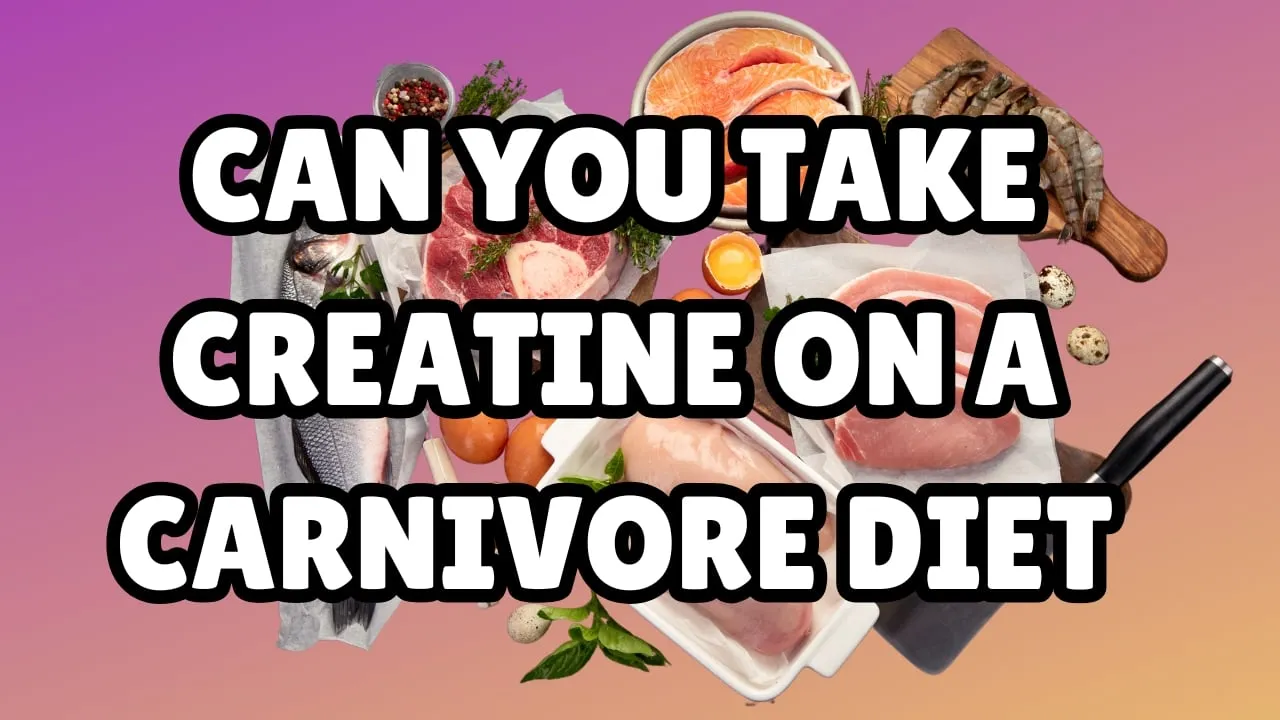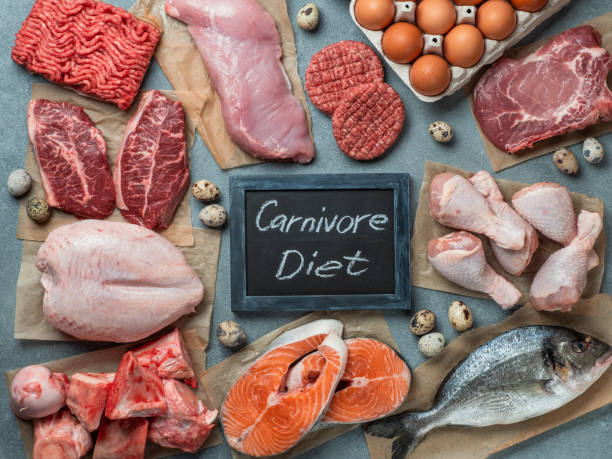Can You Take Creatine on a Carnivore Diet?
Can You Take Creatine on a Carnivore Diet?
Creatine supplementation has been widely embraced by athletes, fitness enthusiasts, and even individuals looking to improve cognitive health. But how does it align with the carnivore diet?
This article dives deep into the science behind combining these two concepts, examining potential benefits, risks, and optimal strategies.
The International Society of Sports Nutrition emphasizes the efficacy and safety of creatine for various populations, but questions remain about its role within restrictive diets like the carnivore diet.
Whether you’re a seasoned carnivore or just exploring dietary supplements, this guide will answer your most pressing questions.
Outline of the Article
- Fundamentals of the Carnivore Diet
- Common Foods on the Carnivore Diet
- The Role of Supplements in a Carnivore Diet
- Nutritional Gaps and Complementary Supplements
- Creatine: Definition and Functions
- Creatine in the Body: Where It’s Found
- Can You Take Creatine on a Carnivore Diet?
- Benefits of Creatine Supplementation
- Optimal Dosage and Administration
- Health Implications and Safety Considerations
Fundamentals of the Carnivore Diet
The carnivore diet is a highly restrictive eating plan focusing exclusively on animal-based nutrition. This diet typically includes foods like red meat, organ meats, eggs, and fish, while completely eliminating plant-based foods.
Proponents claim the carnivore diet aids in weight loss, improved digestion, and reduced inflammation. However, critics point out potential nutritional deficiencies, especially in vitamins and minerals not found in animal products.
Understanding these dynamics is crucial when integrating dietary supplements like creatine.
Learn more about creatine-containing foods to maximize your diet’s potential.
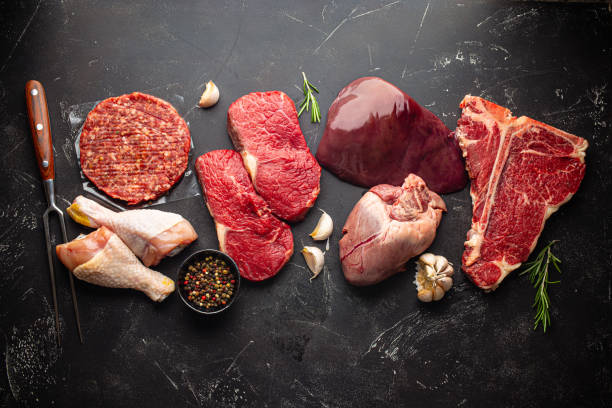
Common Foods on the Carnivore Diet
Red Meat and Organ Meats
Red meat and organ meats are staples of the carnivore diet. These foods are rich in protein, amino acids, and saturated fats, which are essential for energy and muscle mass maintenance.
However, the phosphocreatine levels in these foods vary, potentially influencing how much additional creatine is needed.
Explore the top creatine-containing foods for more insights.
Eggs and Fish
Eggs and fish provide essential nutrients like omega-3 fatty acids and high-quality protein, but they lack the creatine monohydrate levels found in red meat.
Thus, supplementation may still be beneficial for individuals focusing on athletic performance and muscle recovery.
Check out creatine supplementation for muscle damage recovery.

The Role of Supplements in a Carnivore Diet
While the carnivore diet is rich in nutrient-dense foods, it may lack certain essential nutrients such as magnesium, vitamin C, and fiber. Supplements, including creatine supplementation, can help bridge these gaps.
The International Society of Sports Nutrition supports the use of supplements to enhance sports nutrition and ensure bioavailability of critical compounds, particularly for individuals engaging in strength training or high-intensity exercise.
Read more about choosing the right type of creatine.
Nutritional Gaps and Complementary Supplements
The carnivore diet’s lack of plant-based foods may lead to deficiencies in electrolyte balance and certain vitamins.
Creatine can complement this diet by improving energy metabolism, muscle glycogen stores, and post-workout recovery.
Other supplements like electrolytes, collagen, and omega-3s can also support overall health and optimize exercise capacity within this dietary framework.
Learn about creatine myths to make informed decisions.
Creatine: Definition and Functions
Creatine monohydrate is a naturally occurring compound stored in muscles and the brain. It plays a pivotal role in producing ATP (adenosine triphosphate), the primary energy currency of the body.
By boosting cellular energy and aiding in muscle recovery, creatine enhances physical performance during high-intensity exercise.
Its role in energy production makes it a valuable addition to any fitness regimen.
Discover how creatine works.
Creatine in the Body: Where It’s Found
Natural Sources
Creatine is found predominantly in red meat and fish. A typical carnivore diet provides some creatine, but the levels may not be sufficient for individuals with high athletic endurance or those engaged in intense resistance training.
Supplementation Necessity
Supplementing with creatine monohydrate ensures consistent and adequate levels for optimal muscle hypertrophy, power output, and training adaptation.
Compare creatine monohydrate vs. HCL to choose the best option.
Can You Take Creatine on a Carnivore Diet?
Absolutely! Creatine aligns well with the principles of the carnivore diet. As creatine is derived from animal-based nutrition, it’s a natural fit. Supplementation offers an easy way to boost levels without altering the diet’s strict parameters.
Additionally, creatine supplementation has no adverse interactions with the carnivorous diet, making it a safe and effective choice for those seeking enhanced physical performance and muscle strength.
Check if creatine breaks a fast to align it with your regimen.
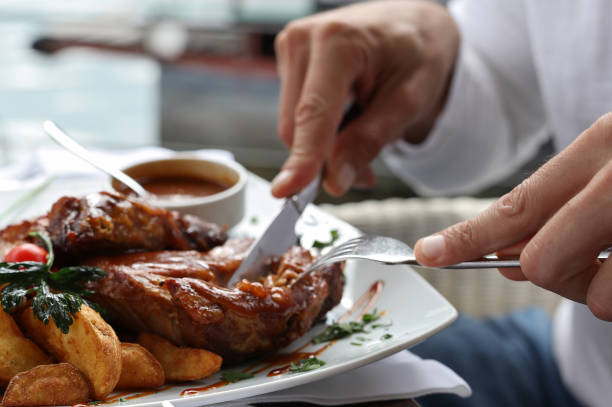
Benefits of Creatine Supplementation
Creatine offers numerous benefits, including:
- Improved muscle recovery and reduced muscle fatigue.
- Enhanced strength training and resistance training performance.
- Increased lean body mass and muscle fiber development.
These advantages are particularly significant for individuals following a high-protein, low-carb diet like the carnivore diet.
Read about creatine supplementation pros and cons.
Optimal Dosage and Administration
Loading Phase
For immediate results, a loading phase of 20 grams daily, split into 4 servings, is recommended for the first 5-7 days. This saturates the muscles with creatine.
Maintenance Dose
After the loading phase, a maintenance dose of 3-5 grams per day suffices to sustain elevated levels.
Taking creatine with a meal rich in protein intake may enhance supplement absorption.
Read more about the loading phase.
Health Implications and Safety Considerations
Hydration and Kidney Health
Adequate hydration is essential when taking creatine to prevent potential strain on the kidneys.
Ensure you drink plenty of water to maintain electrolyte balance and support overall health.
Individual Variations
While generally safe, some individuals may experience minor side effects like bloating.
Consulting with a healthcare professional ensures personalized guidance, particularly for those with pre-existing conditions.
Learn about creatine side effects.
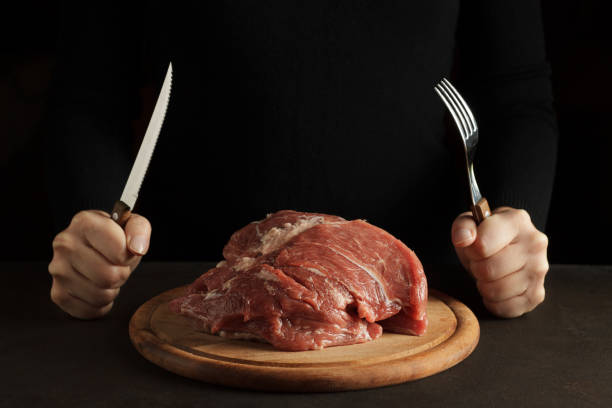
Summary: Key Takeaways
- The carnivore diet focuses on animal-based nutrition, providing some natural creatine but often requiring supplementation.
- Creatine monohydrate enhances muscle recovery, physical performance, and energy production.
- Supplementation aligns with the carnivore diet’s principles and fills potential nutritional gaps.
- Start with a loading phase, followed by a maintenance dose, and prioritize hydration.
- Always consult a healthcare professional for personalized advice.
By integrating creatine into your carnivore diet, you can achieve optimal athletic performance, support muscle mass, and enjoy enhanced training adaptation.
Learn more about creatine supplements.
For More Training Advice + Diet and Lifestyle visit us Combat Creatine
PS: Make sure you check out the rest of our Creatine Guides:
Creatine
When to Take Creatine: Pre vs Post Workout
Is Creatine Safe for Teen Athletes
Can You Take Creatine for Weight LossShould I Take Creatine on Rest Days or Off Days
Can You Take Creatine Before Bed
Can You Take Creatine Without Working Out?Can You Mix Collagen and Creatine in One Drink?What Happens When You Stop Taking Creatine
The Impact of Alcohol and Creatine

